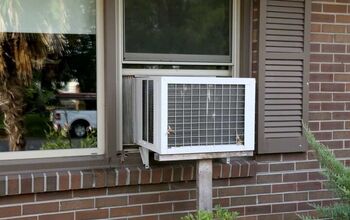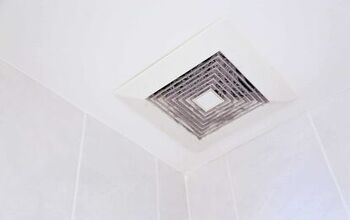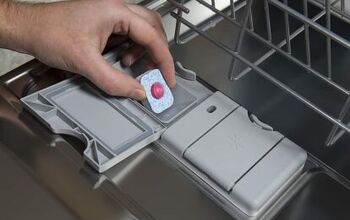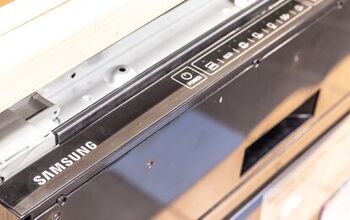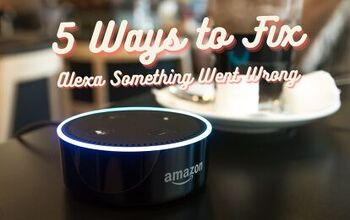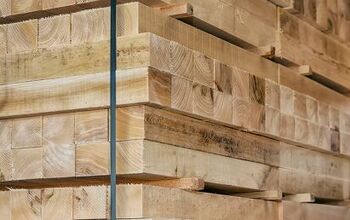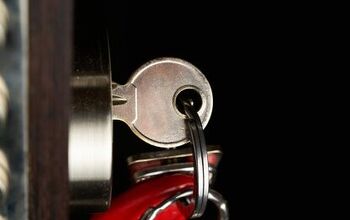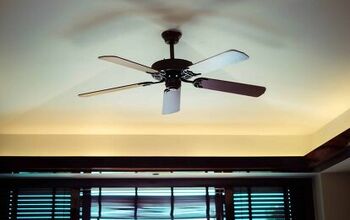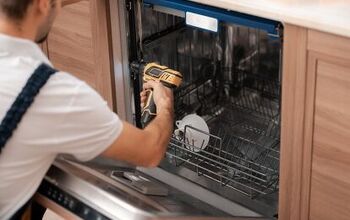Dishwasher Making A Loud Buzzing Noise? (We Have A Fix)

Dishwashers are quite the handy kitchen applianc e. Gone are the days where every meal results in a long manual dishwashing session. Thanks to dishwashers, we can simply load them up and go back about our business.
There are a few noises that can emanate from dishwashers that are a cause for concern. If you hear buzzing noises coming from your dishwasher, it can typically be quite normal. Sometimes, though, it can be a water hammer issue where bursts of water move the pipes and cause them to bang up against surrounding items.
Do You Need Appliance Repair Services?
Get free, zero-commitment quotes from pro contractors near you.

What is that Buzzing Noise?
Just because a dishwasher makes noise doesn’t necessarily mean that there is something wrong. A buzzing noise in particular may be nothing at all. The reason is that it creates a buzzing noise when trying to force water down through the drain. Not only that, but you will hear a soft buzzing noise coming from the soft disposal unit during a wash cycle.
The only instance where it may be an issue is known as a water hammer issue. This issue is caused by rapid bursts of water that cause the pipes to shift and move. When that happens, the pipes can bang up against anything that is nearby.
What’s the fix? Get a water hammer shock arrestor. It won’t stop the movement, but it will absorb the sound created by the banging. Plus, it will protect the pipes from banging into other objects.
Other Dishwasher Noises
You may notice other sounds emanating from your dishwasher. Again, dishwashers can make noise from time to time without worry. It is just part of the normal wash cycle process and is generally nothing to be concerned about.
That said, there are definitely some sounds to listen for that can be potential concerns. Knowing those sounds and what to look for can leave you prepared to make the proper repairs when needed. That will help keep your dishwasher running at optimal levels for far longer.
Dishwasher Making Grinding Noises
Believe it or not, there are some dishwashers where a grinding noise is completely normal. Those dishwashers come built with an electronic control. The electronic control has a motor-driven electrical switching device within the panel. Because of the motor, it is normal to hear grinding when the dishwasher is cycling normally.
Should that grinding noise start suddenly, there is something that you can do.
- Stop the cycle. Open the dishwasher’s door mid-cycle, stopping the washing cycle. Give it a minute so that any steam can dissipate.
- Drain impeller. Pull the bottom rack out and be sure to check for any potential lodged items near or in the drain impeller. The impeller is those rotating plastic blades at the bottom of the machine. If there is nothing and the sound persists, take the impeller out completely to see if there is any debris located in the blade area.
- Insufficient water. When the impeller is in good condition and looks fine, it could be a water spraying problem. Check out the water-inlet valve to make sure that there is sufficient water spray in the dishwasher.
If everything looks good and you still notice a grinding noise that doesn’t sound quite right, call in a professional. They have the skills and experience necessary to troubleshoot the issue and solve the problem.
Humming Noises
As is the case with some of the other noises, humming can be a normal part of the wash cycle. It is when you begin to notice an unusual hum that things are worth checking out. The most common cause of abnormal humming generally revolves around the fan.
If that humming is particularly loud or evolves into a high-pitched noise, then the dishwasher’s motor could be bad. The nice thing is that a new motor can be purchased without the need for replacing the entire dishwasher. Just make note of the model and make of your dishwasher before heading out to the hardware store.
Squealing Noises
Hearing a squealing noise coming from your dishwasher can be a scary thing. After all, it is rarely a normal or good thing to hear squealing when it comes to moving mechanical components. But it is actually 100% normal to hear squealing coming from your dishwasher.
The squealing is most common in two instances: initial use and after long periods without use. When you buy a new dishwasher, it is normal for it to squeal the first couple of times that it runs. New dishwashers might not have any water in them, causing the squealing or rattling.
If you have not used your dishwasher in a long period of time, you may hear that squealing noise. Depending on how long it has been since you last used your dishwasher, try adding about a quart of water to the bottom of the dishwasher tub to reduce or eliminate that noise.
Clicking Noises are Normal, Too
A clicking noise is most likely nothing to be concerned about, either. Some modern dishwashers have electronic controls equipped. That electronic control makes noises while the dishwasher is going through its wash cycle.
So long as the clicking noises are emanating from the control panel, there is nothing to be concerned with. Dishwashers can’t be completely silent as there is simply too much happening for that. A few noises here and there are normal and nothing to be concerned over.
What About that Rattling Noise?
Rattling coming from the dishwasher can be a little more difficult to properly assess. In some instances, it could just be that utensils, dishes, and other kitchenware in the dishwasher have not been seated properly in their rack.
- Plumbing issue. If you are certain that there are no loose utensils, the plumbing could be at fault. When plumbing starts to wear and go bad, it can create that rattling noise that you hear.
- Faulty motor. A better place to start is by checking out the motor. Rattling can come from the motor and not the loose utensils. Try emptying the dishwasher and running it without anything inside. If you hear that noise again, try checking on the motor first. It is quicker and easier to check on the motor than it is to look at the plumbing.
Banging Noise
Banging noises during a dishwasher cycle is rarely a good thing. There are times where they can be associated with the buzzing noise, but it usually indicates a more serious issue. The aforementioned water hammer problem is the likely cause.
When the water hammer gets severe enough, it can cause the pipes to rattle. This happens when the water valve closes and the sheer force of the water rattles the pipes. When the pipes bang up against things around them, it can potentially damage or even break them. Bring in a professional to resolve the issue sooner rather than later.
Clunking Noise
From time to time, you may notice a clunking noise in the middle of the dishwasher’s cycle. While it certainly sounds like something to be concerned about, it isn’t a problem. As a matter of fact, there is a very common explanation.
The clunking noise happens when the detergent cup opens near the halfway point of the cycle. You can rest easy knowing that the clunking noise is not a big deal and something that you can likely just ignore.
Dishwasher Making Thumping Noises
Like the vast majority of other noises, hearing a thumping noise may not be a big deal. It could be the drain line hitting the back wall or sides of the cabinet as the dishwasher runs. Depending on when the dishwasher was installed, it could just be a simple issue of readjusting the dishwasher in the cabinet.
Should the noise become a regular thing at regular intervals, then it could be the spray arm at fault. The spray arm can hit something during the rotation. Pop the machine open, take a look at the orientation of your pans and pots, and the thumping noise should go away.
Do You Need Appliance Repair Services?
Get free, zero-commitment quotes from pro contractors near you.

Snapping Noises at Various Intervals
A loud snap can certainly sound like a cause for concern. In some cases, it is that detergent cup mentioned previously. But if you hear it throughout the cycle, it could be tied to water draining out from the interior of the machine. Since that draining happens multiple times throughout, it is common to hear the snapping multiple times.
Solenoid charging. The most likely reason that you will hear snapping during the wash cycle is that the solenoid is charging. When the dishwasher fills and drains, the solenoid charges, resulting in the aforementioned snapping noise. For the most part, the noise is not a cause for concern.
The only reason that you should be concerned with a snapping noise is if your dishwasher isn’t one of the “turn-to-close” models. In that instance, the most likely explanation is a broken mechanism somewhere within the door hinges. You can attempt to figure it out on your own or bring in a professional to do the job.

Ryan Womeldorf has more than a decade of experience writing. He loves to blog about construction, plumbing, and other home topics. Ryan also loves hockey and a lifelong Buffalo sports fan.
More by Ryan Womeldorf










